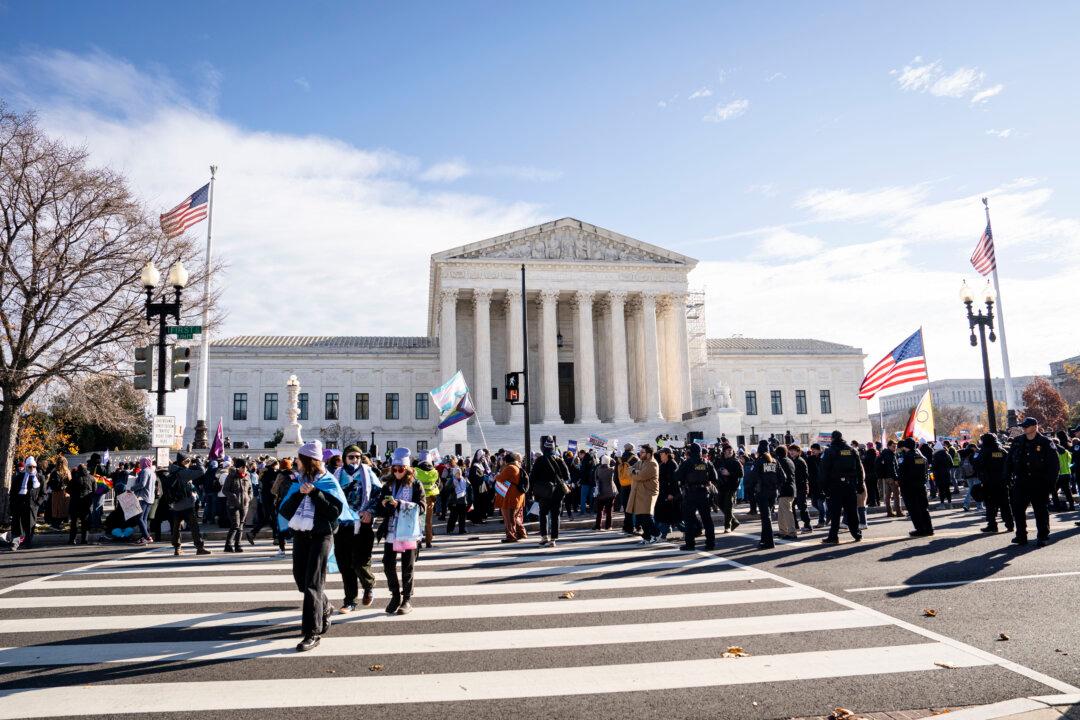The Biden administration has challenged the law under the 14th Amendment to the U.S. Constitution.

WASHINGTON—The U.S. Supreme Court heard oral arguments on Dec. 4 over Tennessee’s ban on gender-altering procedures for minors, teeing up a potentially game-changing decision for precedent on this issue.
American Civil Liberties Union attorney Chase Strangio and U.S. Solicitor General Elizabeth Prelogar asked the court to remand or send Tennessee’s law back to a lower court for reconsideration. Prelogar said the law represented a form of sex-based discrimination that should be scrutinized more heavily under the equal protection clause of the 14th Amendment.
Tennessee Solicitor General Matthew Rice told the court that the law didn’t create a classification based on sex but instead was focused on the purpose of cross-sex hormones and puberty blockers. The equal protection clause, he said, doesn’t require states to “blind themselves to medical reality.” He also compared the medical community’s acceptance of gender procedures to previous acceptance of eugenics and lobotomies.
During oral argument, multiple justices raised concerns about the evolving nature of debate in this area, as well as the level of scrutiny that courts should apply to laws such as Tennessee’s. Some justices seemed hesitant about applying the Constitution in the way that Prelogar suggested the court should, while others indicated that they believed that the law was drawing a line based on sex.
Justice Clarence Thomas asked why the court shouldn’t see the law as an age-based classification rather than a sex-based classification. He also asked whether there was a difference between the effects of testosterone on a female versus a male.
Prelogar said that she recognized differences between males and females but suggested that the state hadn’t substantiated the risk involved in administering cross-sex hormones.

